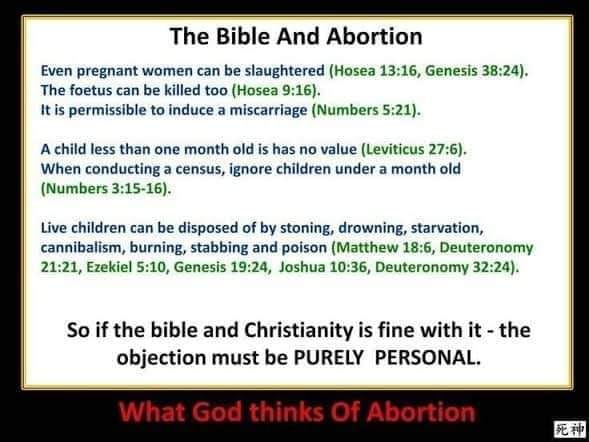Blog
Meditations
Singleness in the Church
Thursday, July 30, 2020
As Bible students, one of our greatest challenges is separating what the Bible says from what we think the Bible says because of 200 years of Restoration tradition. Often, the problem is not so much one of doctrine as one of emphasis. Because we focus on one aspect of truth over another, we distort the overall picture.
This is particularly obvious when it comes to familial relationships. Marriage and the family is not a major theme of Scripture. You have the divorce passages in the gospels, the early part of 1 Corinthians 7, and instructions on Christian submission in Ephesians, Colossians, and 1 Peter. That’s about it.
Nonetheless, marriage and the family is one of the major themes of preaching and teaching in churches of Christ. We have gospel meetings, marriage-enrichment classes, books, and outside seminars galore! With the aid of pop psychology, those few texts are inflated into one of the most important themes of the faith.
By contrast, we take the opposite approach to 1 Corinthians 7:25-40, a text about singleness that is longer than any of those texts about marriage. The way most brethren teach it, the most important thing in the context is the three words, “the present distress”. They allow us to gloss over Paul’s comments about the spiritual advantages that the unmarried have, perhaps because we’re worried about sounding like we’re endorsing a celibate priesthood.
However, all of this creates in the minds of brethren the misconception that to be a Christian, you really ought to be married, and if you aren’t married (especially if you’re a woman), you’re a second-class Christian. This has pernicious effects. It certainly makes single Christians (a numerous tribe) feel inadequate, and it most likely pushes people into marriage who should not be getting married. Would there be so many troubled marriages in the church if we spent more time emphasizing singleness as an acceptable alternative?
Don’t get me wrong. I am pro-marriage and indeed happily married. However, I’m pro-single Christians too. There are many reasons why they are where they are. Some haven’t gotten married yet. Others have been widowed. Others have gotten divorced. Still others don’t want to get married. All of those states can be every bit as valid for the child of God as marriage is.
What’s more, as Paul notes in 1 Corinthians 7:32-35, single Christians are able to serve God with their undivided attention in a way that married Christians aren’t. I love my wife and children, but being a godly husband and father takes a lot of time and effort! Without those obligations, there are many ways in which I could serve my God, my brother, and my neighbor that I now can’t contemplate.
To my single brothers and sisters, then, I say: Don’t regard singleness as the unhappy waiting room you sit in before your real life as a Christian begins. Don’t feel like it condemns you to second-class Christianity.
Instead, serve the Lord where you are with what you have. Use your precious gift of time to glorify God. Be eager to help in the church. Be active in your community. Seek God diligently by yourself. Study. Pray. If you doubt the value of such quiet moments, ask a Christian mother with children under the age of five!
Most of all, trust God. He did not create you to have a meaningless, pointless, empty existence. Though it is not good for man to be alone, our greatest need is not for marriage. It is for Him, and only He can fill that need. I know people who have tried to make marriage fill the God-shaped hole. On the other hand, I also know those who never married and dedicated themselves to Christ instead. Guess who has lived a happier, more fulfilled life?
In time, all marriages come to an end, but the Christian’s walk with God does not. What matters most is not whether we are married or will be married or anything of the sort. What matters most is whether we seek completion in Him.
The Problem with a Comprehensible God
Wednesday, July 29, 2020
In my time as a preacher, I’ve had my share of conversations with people who thought they had a moral or philosophical justification for their agnosticism/atheism. They found something in the Bible they didn’t like. Maybe it was God commanding the slaughter of the Canaanite children. Maybe it was God condemning the practice of homosexuality as sinful. Maybe it was God’s foreknowledge of human activity. Regardless, there was something that displeased them, they couldn’t see how it was consistent with their understanding of God, so they concluded that God didn’t exist.
I believe there are answers to all of these objections (and the others like them), but there’s an even more fundamental problem with that line of reasoning. All of these scenarios begin with the doubter constructing their version of God (possibly in good faith; possibly as a straw man), comparing their construct to the Biblical record, and concluding that the God of the Bible doesn’t measure up. Their God wouldn’t do that!
To which I say, “So what?” The God of the Bible doesn’t make sense to them. Why should they have any expectation that a being of vastly greater understanding (which is how the Bible presents God) ought to make sense to them?
I am quite confident that five years ago, when I told my children that they couldn’t eat Halloween candy for three meals a day, it didn’t make sense to them either. “Candy tastes good, and it is there to be eaten. It tastes better than stuffed peppers, so we should have it for dinner instead of stuffed peppers. What am I missing?”
Children don’t know what they don’t know, and they don’t understand what they don’t understand. And yet, my five-year-olds were much closer in intellect to me than I or any atheist doubter is to God. If the child is unable to understand the parent, how much more will the creation struggle to understand the Creator!
Consequently, we should expect there to be many times when God does or tells us to do things that don’t make sense to us. A God who is omniscient ought to be incomprehensible to human beings who aren’t. Just like the toddler isn’t going to back Mom into a logical corner so that she offers up candy on demand, we aren’t going to be able to use the times that God doesn’t make sense to us to prove that He doesn’t exist. The problem isn’t Him. It’s us.
Indeed, it is the comprehensible God who looks much more like a figment of the human imagination. The gods of the Greeks were comprehensible. They got in ridiculous fusses with each other like people do. They committed adultery like people do.
Despite their greater power, these gods fit into a human frame. They were idols, crafted to resemble people not only in outward features but in personality and scope. They made sense because they were human in origin.
The God of the Bible does not make sense like that because He did not come from us. He is not human or human-like. He doesn’t even exist in the same state of reality. He is utterly alien to us, and it is a tribute to His skill in communication that we are able to understand Him even as well as we do.
The alien-ness and incomprehensibility of God, rather than being a sign of His non-existence, really is a proof to the contrary. If we don’t understand Him, that is as it should be. We can expect to have unanswered questions for as long as we live and maybe thereafter. Conversely, if we think we do understand Him, we’re missing something.
Our job is not to make God make sense. It is to seek to please Him. As Moses wisely observed in Deuteronomy 29:29, “The secret things belong to the Lord our God, but the things revealed belong to us and to our sons forever, that we may obey all the words of this law.”
The Bible and Outside Scholarship
Friday, July 24, 2020.jpg)
If there is anything that stands at the heart of our faith, it is the idea that ordinary Christians can read and understand the Bible for themselves. Unless we are competent to do so, every other conclusion that we reach—about God, about Jesus, about salvation—is suspect. Until we find an expert to interpret the Bible for us, we are in serious trouble!
This is a powerful idea with many implications. One of them is that we must be wary of any interpretation of Scripture that relies on evidence outside the Bible. For instance, Craig Keener’s argument that women should be allowed to lead in public worship depends on scholarly conclusions about the lack of education of women in the first-century Roman Empire. Reasoning from those conclusions, he dismisses 1 Corinthians 14:34-35 and 1 Timothy 2:12 as culture-specific and no longer relevant.
The problem is that if scholarly opinion is not only helpful but necessary to an argument, the argument will fail without backing from scholars. Thus, anyone who reads the Bible on their own, without assistance from outside sources, cannot reach the correct conclusion. They are not competent to understand the Bible for themselves, and the Bible itself is not a sufficient guide to faith and practice.
For instance, let’s assume that Keener is right. The scholars have it pegged, and 1 Timothy 2:12 is a culturally specific instruction that does not apply to women today. Well and good, but what about our brethren in the 19th century who studied and applied 1 Timothy 2:12 before all these scholars did their research?
If Keener is right, they must have been wrong. They required something of their sisters in Christ that God did not require. Indeed, rather than being useful, the Scriptures were deceptive. The plain reading of 1 Timothy 2:12, even understood in the context of the entire Bible, led them into error.
Such an outcome would be fatal to our belief that we ought to try to understand the Bible for ourselves. If we can do everything right in our Bible study but still get it wrong (because we didn’t consult the right expert), it is better for us to leave study to those who are wiser and more scholarly than we are. Rather than relying on our own judgment, we should rely on someone who has the training and the time to sift through the dueling academics and figure out which ones are worth listening to.
Ultimately, though, if this is the world in which we live, we shouldn’t listen even to the experts. The composition of the Bible was finished 2000 years ago, but the accumulation of articles and books about the Bible continues to this day. What if some professor five years from now, or ten years from now, makes a discovery that transforms our understanding of, say, the importance of baptism? If so, even the most expert of experts can’t help us be right today, and we can have no confidence in any attempt to discern truth in the word of God.
Of course, none of this is to say that academic and scholarly writing is useless in understanding the Scriptures. At its best, it adds nuance and depth to our comprehension of divine truth. The experts have their place.
However, we must make sure that we keep them in their place. A mountain of scholarly articles is not enough to overturn the testimony of the Scriptures. Scholars are people too, and human fallibility is precisely the reason why we need an infallible written guide. Let God be found true, though every man be a liar! We cannot place our trust in even the wisest of human beings. It must be in Him.
Always Look up the Passages!
Wednesday, July 08, 2020
There are many attempts to interpret the Bible floating around on the Internet, some of them very useful and good, some of them very. . . not. Indeed, as the above illustrates, it is possible to find memes that claim that the Bible teaches exactly the opposite of what we believe it teaches. Many of them look very authoritative, too, with loads of parenthetical citations of Scripture.
Lazy, ignorant people who agree with the meme rejoice. “See??? I knew it all along!” Lazy, ignorant people who disagree with the meme, on the other hand, become disheartened and confused.
However, there is a simple cure for such confusion. Don’t take Random Internet Dude’s word about what a passage says. Instead, look it up, and see for yourself if the interpreter is interpreting correctly.
In this case, such a simple process (I can’t imagine it taking anyone more than 15 minutes) will reveal the meme as a tissue of lies, cynically crafted to cast doubt on Biblical teaching about the value of life. Let’s take it from the top:
Hosea 13:16 predicts that pregnant women will be slaughtered. It does not offer permission to do so.
Genesis 38:24 is about Judah demanding that pregnant Tamar be burned for prostitution. Before we get too impressed with Judah as an example of righteousness, we should remember that he was the one who impregnated Tamar in the first place. He slept with her because he thought she was a prostitute. Nobody in this story reveals God’s will.
Hosea 9:16 discusses God punishing Israel by killing those who already have been born. It’s not about fetuses in utero.
Numbers 5:21 is in the weird context about the water of bitterness bringing a curse on adulterous women. It has nothing to do with miscarriage.
Leviticus 27:6 is about valuing people who have been vowed to the Lord in some way. Only providing a valuation for infants who are at least a month old has a lot more to do with the horrific prevalence of infant mortality 3500 years ago (newborns often did not survive) than it does with the newborn’s intrinsic lack of value.
Numbers 13:15-16 excludes newborns from the census for the same reason. Note also that women weren’t numbered either, but any argument that women are valueless runs headlong into a number of New Testament passages.
Matthew 18:6 is about drowning the one who offends a little child, not about drowning the little child, and it’s figurative anyway.
Deuteronomy 21:21 is about stoning a rebellious adult child, someone who is a glutton and a drunkard.
Ezekiel 5:10 is a prediction of cannibalism during the siege of Jerusalem (fathers eating sons, sons eating fathers). It does not establish cannibalism as godly behavior!
Genesis 19:24 describes God judging Sodom and Gomorrah by raining down fire on them, and it’s blasphemous to claim that the judgments that the Lord executes give us permission to kill.
Joshua 10:37 (the meme says 10:36, but I will be gracious) is about the Israelites destroying the Canaanites of Hebron, including children. Again, they did so because God expressly commanded them to, in Deuteronomy 20:16-17. There is no corresponding commandment concerning abortion.
Deuteronomy 32:24 mentions poison but not children.
In short, what looks like a devastating rebuttal of conservative views on abortion proves to be anything but. It does nothing to prove that the Bible and Christianity are “fine with it”, nor does it reveal what God thinks about the practice.
The point is this: Whenever anybody (whether I or an angel from heaven) makes a spiritual claim and cites a Scripture in support, always, always, ALWAYS look up the passage! Teachers of the truth won’t mind; in fact, they will be pleased. False teachers will mind very much, but it is godly to expose their falsehood. Never put your trust in men. Put your trust in the word of God!
Being Right and Wrong at the Same Time
Thursday, July 02, 2020
I am quite sure that God frequently shakes His head in amazement at my foolishness. However, I hope that year by year, decade by decade, I manage to get a little bit wiser. One such hard-won nugget of wisdom has to do with being right and wrong at the same time.
When I was younger, I believed that when it came to a difference of opinion, there was a right side and a wrong side, and that was that. I tried to listen to the views of others and give them a fair hearing, but when I thought I was right, I was quick to inform others of their error. The only thing that mattered was who was right, right?
Wrong.
The problem is that people aren’t computers. People are people. All of us have an emotional attachment to the things we believe. When those convictions are challenged, we don’t enjoy it and are apt to become defensive. If the challenger continues to push, either we push back or disengage from the conversation. There’s been a lot of talk recently about white fragility, but frankly, I think human fragility is the real issue. Nobody’s skin color makes it easier or harder for them to hear things they don’t want to.
If we don’t acknowledge this fundamental truth about people, we are much less likely to win converts and much more likely to create conflict. The map is not the territory, and merely presenting the abstract truth about something often fails to persuade. When we’re right on a conceptual level but get the human aspect wrong, we will end up being right and wrong at the same time.
I spent years being right and wrong at the same time, and I probably spend too much time there even now. I don’t recommend it. It strains and fractures friendships, creates lots of enemies, and accomplishes nothing worthwhile. People won’t listen, and we will become cynical and embittered because they aren’t listening.
If we want to avoid this trap, there are several things we need to consider. What’s our goal? Usually, it isn’t (or shouldn’t be) just to “get somebody told”. As Paul says in 2 Corinthians 5:11, knowing the fear of God, we ought to try to persuade others. Winning hearts is the goal of the gospel. Winning arguments isn’t.
Persuasion requires us to account for the humanness of those we are trying to persuade. One of the most enlightening books I’ve read in recent years is Kerry Patterson’s Crucial Conversations. It observes that people only are persuadable when they feel safe. The less safe they feel, the more inclined they will be to reject what you have to say.
There are a number of ways to build safety in a difficult conversation. Having a strong pre-existing relationship is perhaps the most important. The more others trust us, the better able we are to safely discuss a difficult topic with them. In fact, I think it’s sound practice for all Christians to build and reinforce relationships with everyone they know as a matter of habit. We never know when we will have to put that relationship to the test.
Second, we need to choose our words carefully. In Colossians 4:6, Paul urges us to season our speech, and our efforts toward palatability can make all the difference between acceptance and rejection. Harsh, condemnatory language rarely wins over its target. On the other hand, when we strive to be understanding, fair, and compassionate, we are much more likely to find an open heart.
Finally, we have to make change as easy as possible. All of us are proud, insecure creatures. We don’t like to admit when we’re wrong, especially not in front of others. Consequently, private conversations generally are more effective than public confrontations. They allow people to change without suffering a dramatic loss of face.
We also need to put ourselves in the place of the one who is wrong and speak to them as we ourselves would like to be spoken to when we are wrong. We never should demand that someone forfeit their dignity in order to acknowledge an error. As satisfying as it may be to make the moron crawl, such demands will destroy our future influence.
Doing even these things is not easy, and there is much more that I could say on the subject! Sadly, I’m sure that I have even more to learn. We live in a society that has forgotten the art of having conversations like these, but this is a skill that we must master if we want to win souls and inherit eternal life ourselves.


